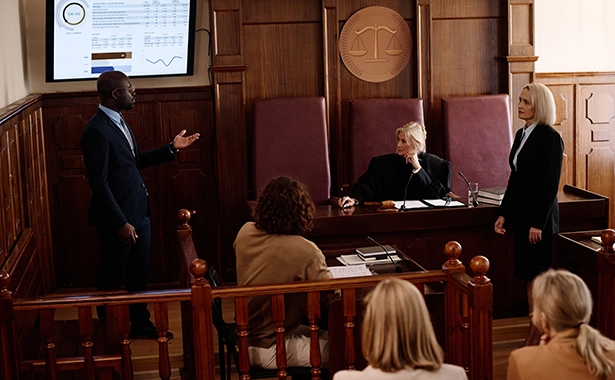Motion
In the legal system, a “motion” is a formal request made to a court for a specific action, order, or ruling. Attorneys use motions to seek various outcomes during a legal proceeding. Motions are an essential part of the legal process.
Common Types of Motions and Their Purposes
– Motion to Dismiss: This motion asks the court to dismiss the case, arguing that there are legal grounds for the case to be terminated before a trial.
– Motion for Summary Judgment: This motion requests the court to make a final ruling on the case based on the available evidence, without going through a full trial. It is typically filed when there is no genuine dispute of material facts.
– Motion to Suppress Evidence: This motion is filed to exclude certain evidence from being presented at trial. The argument is usually based on the claim that the evidence was obtained illegally or in violation of the defendant’s rights.
– Motion in Limine: This motion is made before the trial begins, seeking a ruling on the admissibility of certain evidence. It is used to prevent prejudicial or irrelevant evidence from being presented to the jury.
– Motion for Continuance: This motion asks the court to postpone a scheduled hearing or trial to a later date. It may be filed for various reasons, such as the unavailability of a key witness or the need for additional time to prepare.
– Motion for Discovery: This motion requests the opposing party to provide certain information or evidence relevant to the case. Discovery motions are essential for parties to gather evidence and build their cases.
– Motion for Injunction: This motion seeks a court order to prevent a party from taking a particular action. It is often used in civil cases where one party alleges that another party is causing harm and seeks to have the harm stopped.
– Motion for Change of Venue: This motion is filed when one party believes that the trial should be moved to a different location due to concerns about bias, prejudice, or convenience.
Overall, motions are a crucial tool for parties to assert their rights, seek remedies, and ensure a fair and just resolution of legal disputes.



